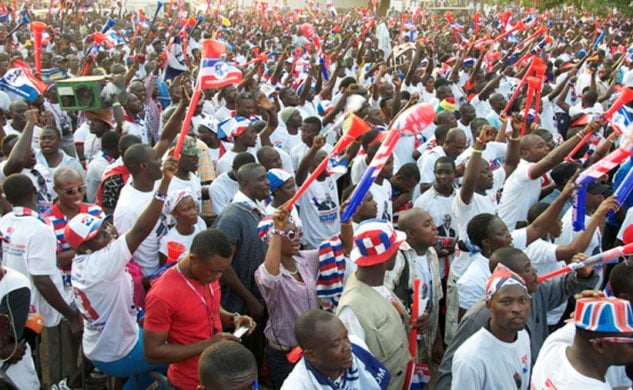Paragraph 1: A Landmark Reform for Internal Democracy
The New Patriotic Party (NPP) embarked on a significant restructuring of its internal electoral processes by enacting a landmark constitutional amendment during its National Annual Delegates Conference held in July 2025. This amendment drastically expands the party’s Electoral College responsible for selecting the presidential candidate, moving away from a more centralized system to a broader, more inclusive model. The reform marks a pivotal moment in the NPP’s internal governance, aiming to deepen democratic participation and distribute decision-making power more equitably among its members. This move is considered a direct response to the party’s defeat in the 2024 general elections and represents a concerted effort to revitalize the party’s structure and reconnect with its base. The conference, themed “Rebuilding Together with Our Values,” served as a platform for this transformative change, signaling the NPP’s commitment to internal reform and a more representative approach to leadership selection.
Paragraph 2: Expanding the Circle of Influence: Inclusion of Party Veterans and Grassroots
The core of the amendment lies in the significant expansion of the Electoral College. Previously composed of a more limited group, the reformed Electoral College now embraces a wider spectrum of party stakeholders, recognizing the valuable contributions of long-serving members and grassroots organizers. This expanded body now includes former Members of Parliament and parliamentary candidates, providing a voice to individuals with legislative experience and electoral understanding. Furthermore, the inclusion of past Metropolitan, Municipal, and District Chief Executives (MMDCEs) acknowledges the critical role of local governance and administration within the party’s structure. This broadened representation aims to bridge the gap between national-level decision-making and the practical realities faced at the local level.
Paragraph 3: Harnessing Institutional Memory and Field Experience
The inclusion of card-bearing former ministers and deputy ministers acknowledges the experience and policy expertise of those who have held executive positions. Moreover, the incorporation of past regional, constituency, and branch executives recognizes the crucial organizational work carried out by party members at various levels. These individuals possess a deep understanding of the party’s structure, its operational dynamics, and the specific needs and concerns of their respective constituencies. By integrating these voices into the Electoral College, the NPP aims to harness their institutional memory, field experience, and long-term dedication, fostering a more informed and comprehensive approach to candidate selection.
Paragraph 4: Empowering the Elders and the Youth: A Multigenerational Approach
The expansion also extends to members of the National Council of Elders and the National Patrons Council, recognizing the wisdom and guidance of senior party figures. These individuals bring a wealth of historical perspective and institutional knowledge, offering valuable insights into the party’s evolution and its core values. Furthermore, the inclusion of TESCON (Tertiary Students Confederacy of the NPP) coordinators from recognized tertiary institutions represents a deliberate effort to engage the younger generation. This move empowers the youth wing of the party, providing them with a direct voice in shaping the future leadership of the NPP and ensuring the party’s continued relevance and appeal to younger demographics.
Paragraph 5: Strengthening Internal Cohesion and Dismantling Perceptions of Elitism
The NPP leadership believes that this expansion will strengthen internal cohesion by fostering a sense of shared ownership and responsibility in the selection process. By giving a voice to a broader base of party members, the amendment aims to dismantle perceptions that the selection of flagbearers is dominated by a select few at the top. This move towards greater inclusivity is also seen as a crucial step in revitalizing the party after its 2024 election defeat, allowing it to present a more united front and reconnect with its base. By incorporating diverse perspectives and experiences, the NPP seeks to ensure that its chosen candidate truly represents the will of the party and is well-equipped to lead it to victory in future elections.
Paragraph 6: A Transformative Step Towards 2028: Rebuilding with Values
The expansion of the Electoral College is regarded as one of the most significant outcomes of the 2025 National Annual Delegates Conference and signals a decisive shift in the NPP’s governance model. This reform positions the party to enter the 2028 election cycle with a stronger, more representative platform for selecting its presidential candidate. By emphasizing inclusivity and broader participation, the NPP aims to project an image of renewed strength and unity, grounded in its core values and historical foundation. The party believes this reform will not only enhance internal democracy but also resonate positively with the electorate, demonstrating a commitment to listening to a wider range of voices and building a more representative and responsive leadership.


